Ed Sheeran and Bhutan show the way ahead for music tourism
The isolated nation and first-time concert host is showing developed countries how to make music tourism more meaningful and sustainable
BY THE time Ed Sheeran bounded onto the stage at Changlimithang Stadium in the Bhutanese capital of Thimphu, the temperature was a nose-numbing 3 degrees Celsius. The winter sun had vanished behind the Himalayan peaks surrounding the ornate wooden stands, and a savage wind was slicing through the jubilant crowd.
Yet, to quote the English singer-songwriter, it was Perfect. This was exactly what our group of travellers from across Asia had come for – an experience so authentic, it could only happen in Bhutan.
Music tourism has become one of travel’s fastest-growing trends as people seek more unique and meaningful experiences. The industry is valued at US$6.6 billion and set to expand to US$13.8 billion by 2032.
The irony is that many concerts and festivals have become formulaic. You buy eye-wateringly expensive tickets, enter a cookie-cutter set-up, use Portaloos, queue for the obligatory merchandise, and get drinks from the same brands as everywhere else, after which you return to your overpriced hotel room.
In contrast, Bhutan’s first concert by an international artist – a gesture that the isolated kingdom is ready to engage more with the world, and a signal of its global ambitions to its restless youth – offered a more original, uncommercial way to do things.
Colourful flags similar to the Buddhist prayer buntings that dot this deeply religious country (but without scripture printed on them) fluttered along the pathway leading to the intricately carved stadium. Inside, groups milled on the grass like they would at a picnic instead of jostling for a spot near the stage as the royal family, in attendance for this special moment, watched quietly from the shadows at the top of the stands.
Navigate Asia in
a new global order
Get the insights delivered to your inbox.
There were no souvenir concert tees to be found, only a couple of kiosks peddling local refreshments in reusable containers. And instead of Portaloos, there was a “toilet bus” – an out-of-service vehicle upcycled into a mobile loo.

Most surprisingly, hotels kept prices down during the period. “We actually worked on a special package that incorporated a lower rate,” says Dorji Tshoden, director of marketing at Zhiwaling, a local luxury group that owns the boutique property Zhiwaling Ascent in Thimphu.
“We wanted to use the attraction of the concert and the lowered rates to increase our bookings.” (It worked. Ninety per cent of the hotel’s guests on the day of the performance were concert attendees.)
Carissa Nimah, chief marketing officer (CMO) at Bhutan’s Department of Tourism, says that one of the event’s priorities was to align it with the country’s values of sustainability, authenticity and community inclusion. This was done by emphasising local partnerships in logistics and production, to give Bhutanese companies the opportunity to work alongside international professionals in the area, as well as maintaining manageable visitor numbers and promoting Bhutanese culture together with the concert.
To that end, the artist selection process was strategic; the government was firm on picking someone whose music would resonate universally. Nimah notes that Sheeran was the “perfect choice” because of his “global appeal, meaningful lyrics and ability to connect with diverse audiences”.
Audience numbers were capped at 23,000, and ticket prices – in a place where the average monthly salary is around US$450 – started at US$10. “We wanted to ensure the concert remained affordable for Bhutanese,” she says.
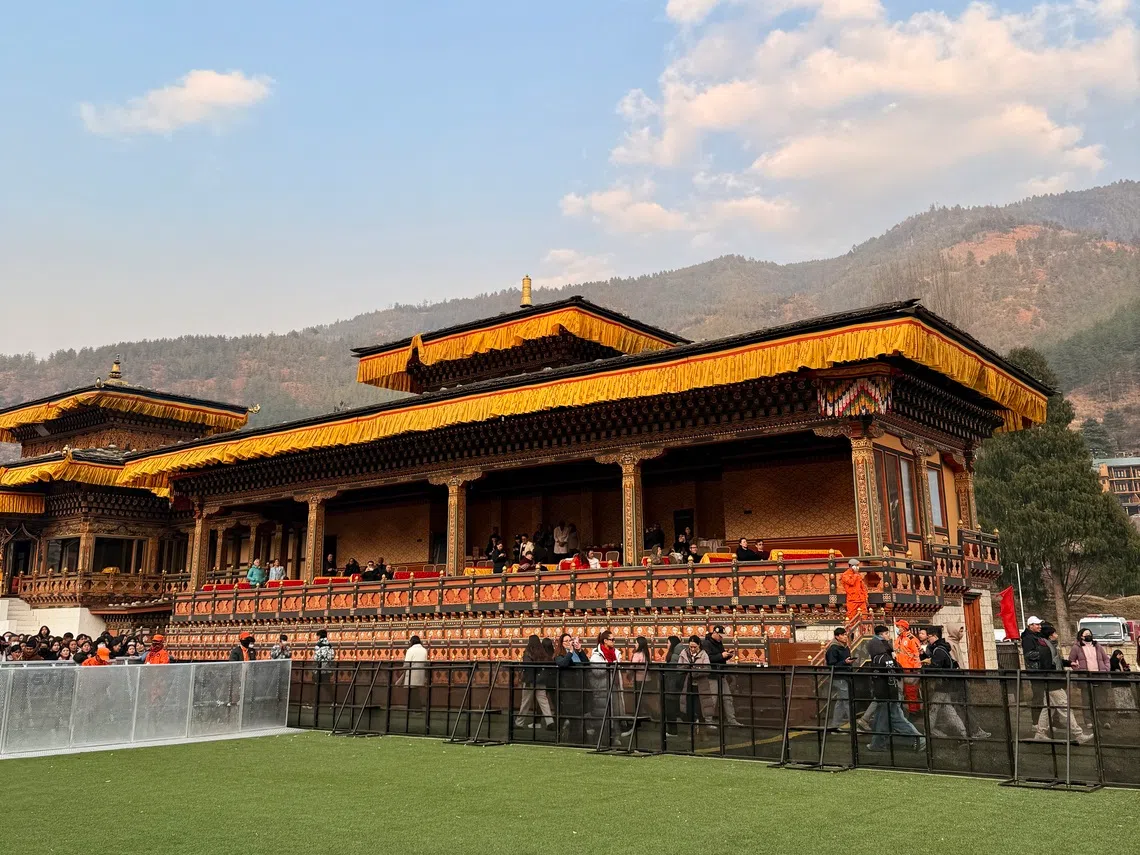
It’s a progressive direction for any country, much less one that opened up to international visitors only in 1974. But then, Bhutan has always balanced profit with long-term perspective. In 2003, for example, it banned all mountain climbing, a potentially lucrative source of revenue for the world’s most mountainous country, to protect its peaks which it considers sacred.
Circle of life
On the afternoon of Sheeran’s performance, we joined an orderly queue of concert-goers snaking down one of Thimpu’s main streets, past the town square and an archery ground, to the stadium’s entrance. It was the first time the city had seen such long lines for an event that wasn’t the annual National Day celebration.
Most people were fashionably dressed young Bhutanese who had taken advantage of the ticket prices and were visibly excited. “This is definitely a moment in Bhutan’s history, to have such a celebrity in town,” Ashik Rai, a 26-year-old park operations engineer, says. “I think the steps we’re taking to bring international influences to the country are a good thing, a great thing.”
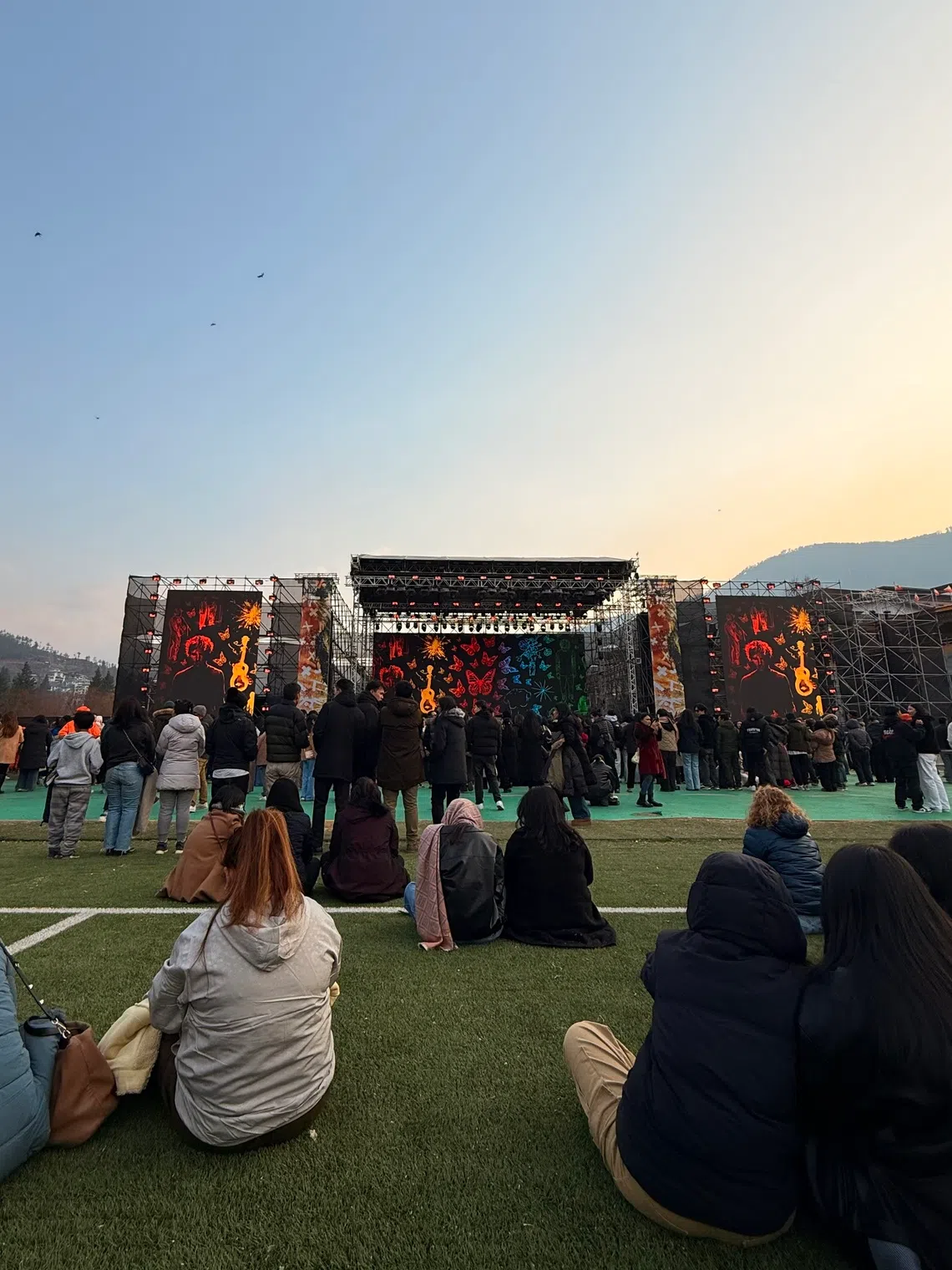
Beyond the concert itself, there are other lessons to take away from how Bhutan – the world’s only carbon-negative country – approaches tourism. The day after the event, guided by Bhutan experts Druk Asia, a Singapore-based travel agency that has been promoting the kingdom since 2009, we braved twisting mountain roads to Punakha, a subtropical valley three hours from Thimphu, whose abundant rice harvests have given it the nickname of the “rice bowl of Bhutan”.
At &Beyond Punakha River Lodge, a Zen-inducing safari-style camp next to the pristine Mo Chhu River, we ate intricately pleated dumplings made by Dorji, a shy young woman from the neighbourhood, as assistant manager Rup Narayan gave a briefing on the property.
The lodge, which opened in September 2023, hires more than 70 per cent of its staff from among those who would otherwise be unemployed because of a local shortage of jobs. These employees are then trained in hospitality, making a stay here a direct contribution to the community.
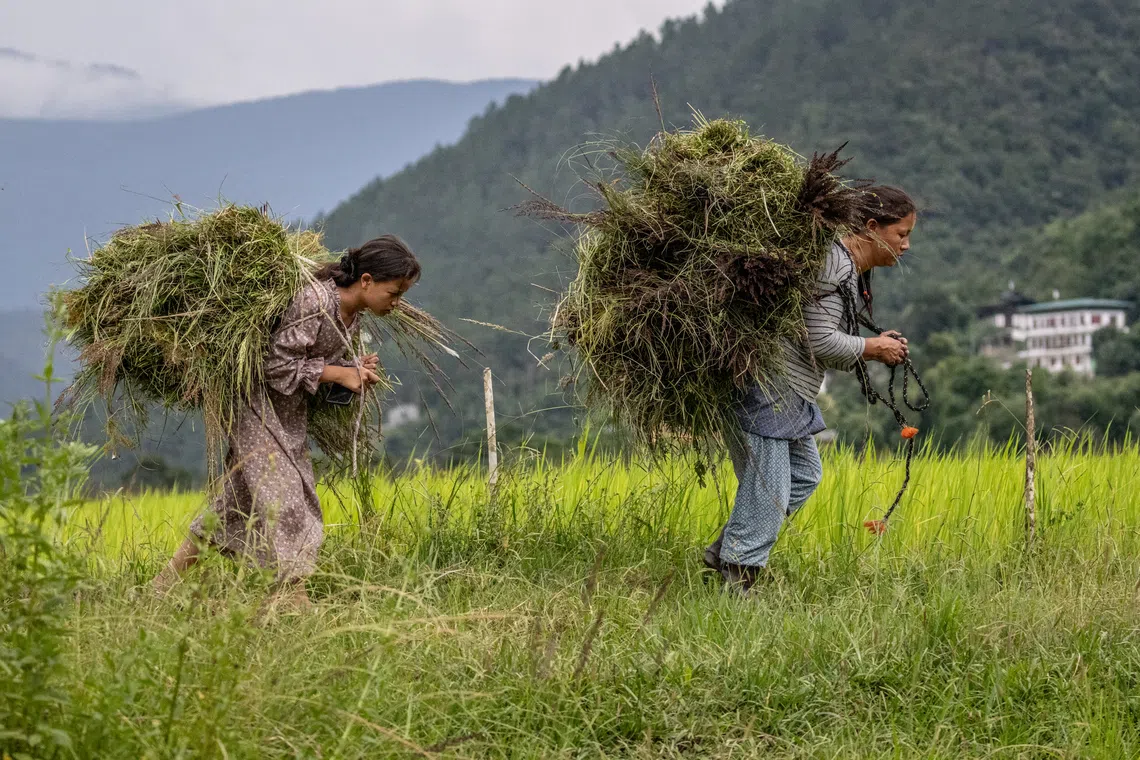
&Beyond also offers agricultural land from its compound to farmers rent-free. In return, the farmers supply the hotel with a portion of their harvested rice. They are free to sell or keep any surplus rice or other crops they grow, which generates income for them and builds food security.
Because of the programme, 46 households have climbed above the poverty line, and many families have been able to afford machines for ploughing the fields – a more efficient way of working than using oxen.
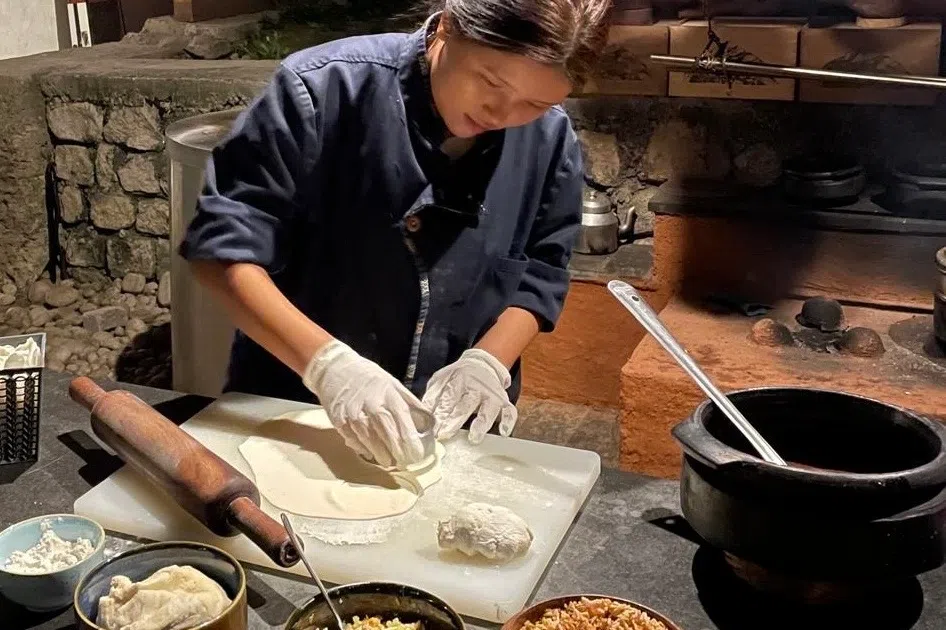
Dorji giggled when we asked her how she felt about her first job. “It’s difficult, but I like it,” she said.
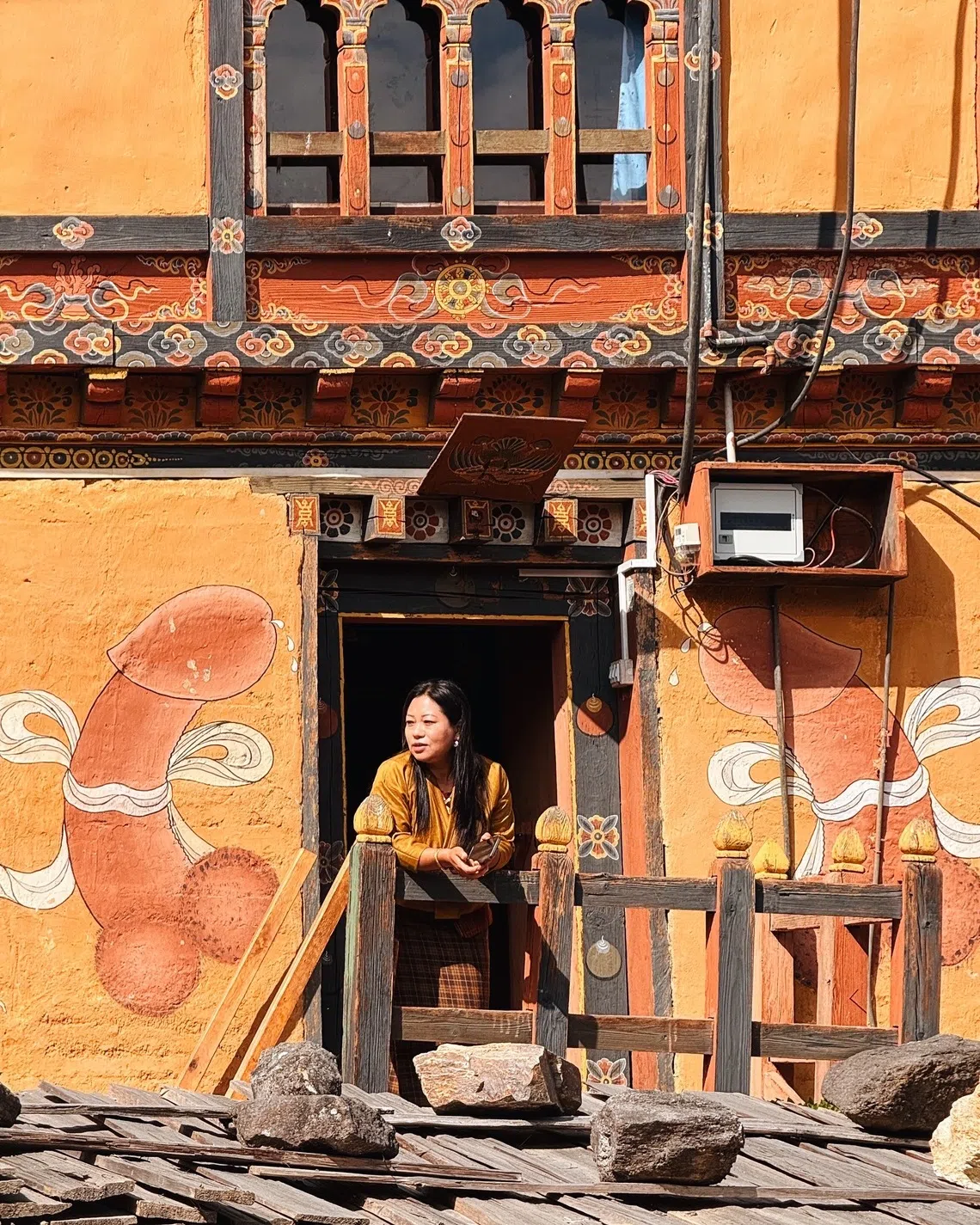
Ground-up efforts offer inspiration for sustainable development, too. At Pema Tshomo’s homestay on the fringes of Punakha, you can learn about the traditional Bhutanese way of life in a 400-year-old house. Meals are cooked with organic produce from her garden.
The former judicial clerk quit her job before Covid to look after the rammed-earth home passed to her by her late grandparents, and became TikTok-famous during the lockdown when she started clearing out the space and posting about the antiques she found. Now her place is one of Bhutan’s hottest tickets, with local companies booking it out for retreats almost daily.
A foundation for the future
We spent our last few days at Zhiwaling Heritage Hotel in the ancient town of Paro, where many of the kingdom’s sacred sites are clustered. Opened in 2005 after being handcrafted by artisans over five years – it was also renovated during the Covid pandemic – the architecturally stunning property is Bhutan’s first locally owned luxury hotel, an ambitious venture on a mission to upskill the community and develop a brand built on Bhutanese hospitality.
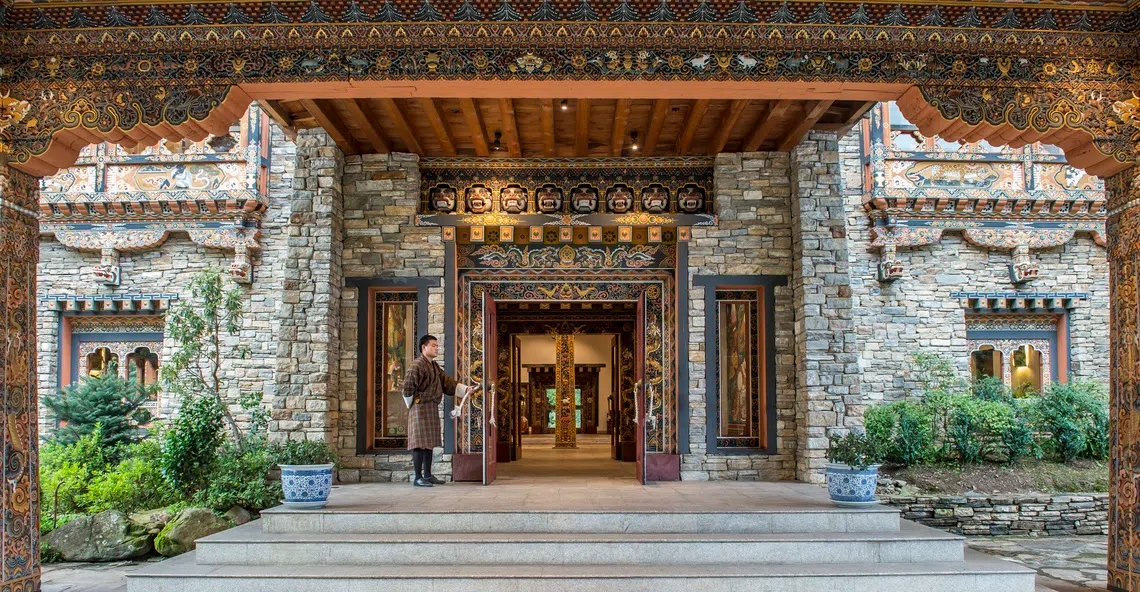
So far, it has recruited farmers, taxi drivers and construction workers, sending them as far as Switzerland for training.
Its managing director Brent Hyde, a New Zealander who has been with Zhiwaling for nearly 20 years, says: “Through these opportunities, we’ve developed a Bhutanese management team who have mostly come through our training programmes. It’s vitally important to showcase the country through (their) ideas.”
The hotel’s lush 4.9-hectare grounds, besides being accommodation for the well-heeled, double as a community platform: It hosts arts masterclasses for local students, supports water, waste and sewage projects, and morphed into a stage for Bhutan’s first sustainable fashion show about a year ago. All in, it is a microcosm of the Bhutanese way of life that is rooted in compassion and mindfulness.
It’s an ethos that those in the realm are consciously preserving. Says Hyde: “Tourism can be a golden opportunity to grow and enhance people’s way of life, and empower a country or region to have independence. But if not managed well, it can also destroy a culture in two generations.”
Nimah, the tourism department’s CMO, says the success of the kingdom’s first international concert has paved the way for Bhutan to further explore music tourism. She says the government is now considering a series of intimate performances that will feature a curated list of international and regional artists, and be aligned with the sustainability model.
Of course, like every development in the world’s last Shangri-La, that will take some thoughtful planning. Says Nimah: “A concert here is not just about the music; it’s an immersive experience rooted in the country’s spiritual and natural beauty.”
In other words, it’s exactly what travellers today want.
Decoding Asia newsletter: your guide to navigating Asia in a new global order. Sign up here to get Decoding Asia newsletter. Delivered to your inbox. Free.
Copyright SPH Media. All rights reserved.








